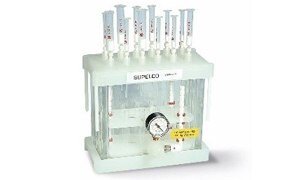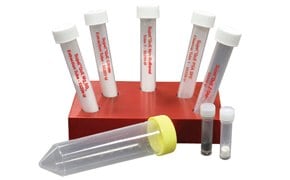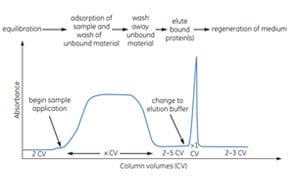Sample Preparation Techniques
Effective sample prep is critical to accurate and efficient chemical analysis. Our applications feature articles, protocols, and troubleshooting guides for analytical sample preparation. Some of these explain how to use a particular product, while others focus on specific analytes or matrices. Many are complete step-by-step guides for purifying a specific analyte from a specific matrix using a specific product. Furthermore, many of them include additional instructions for analysis by GC, HPLC, LC-MS, and a variety of other analytical techniques.
Solid phase extraction (SPE) is a technique used for rapid, selective sample preparation and purification prior to chromatographic analysis (e.g. HPLC, GC, TLC). SPE is used to exchange sample matrices, concentrate analytes, and remove interferences and contaminants to improve data and protect the analytical column.
Solid phase microextraction (SPME) is a solvent-free sample preparation technique that uses coated fibers to extract analytes of interest from a sample before analysis by GC or HPLC.
QuEChERS is a ‘Quick, Easy, Cheap, Effective, Rugged and Safe’ sample cleanup method sample cleanup method that is predominately used to prepare food and agricultural samples for pesticides analysis. QuEChERS is based on the Solid Phase Extraction (SPE) technique of sample preparation.
Filtration separates substances based on physical or chemical properties. Lab samples are routinely filtered before analysis to reduce sample complexity and increase analyte purity. This allows scientists to generate higher quality analytical results.
A range of purification methods may be used to prepare a sample prior to downstream analysis. Purification reduces sample complexity, removes interferences, and concentrates an analyte before analysis.
To continue reading please sign in or create an account.
Don't Have An Account?



